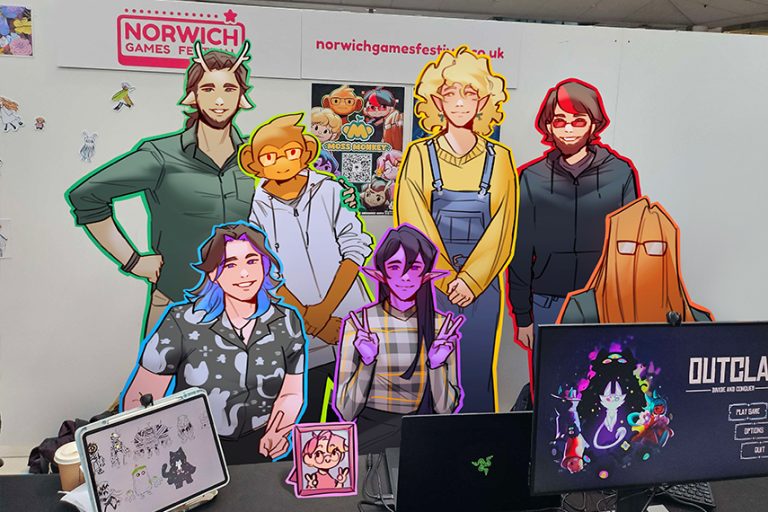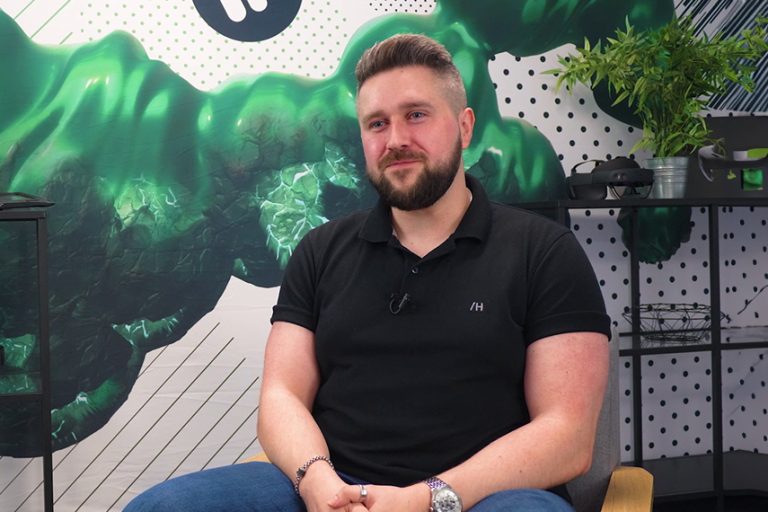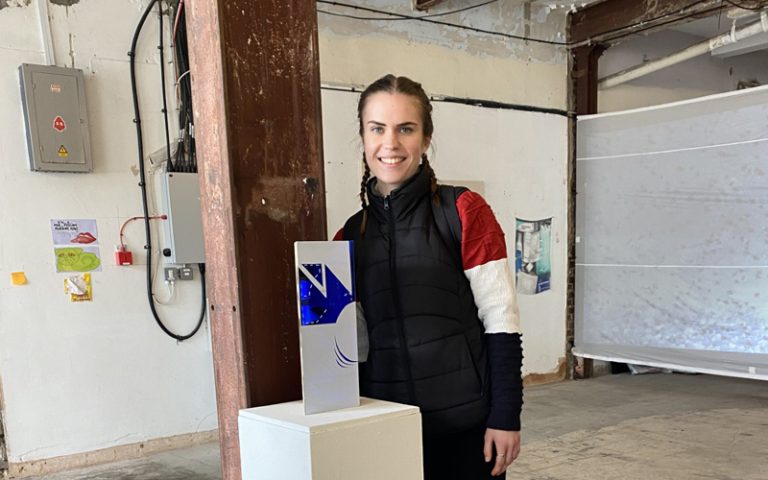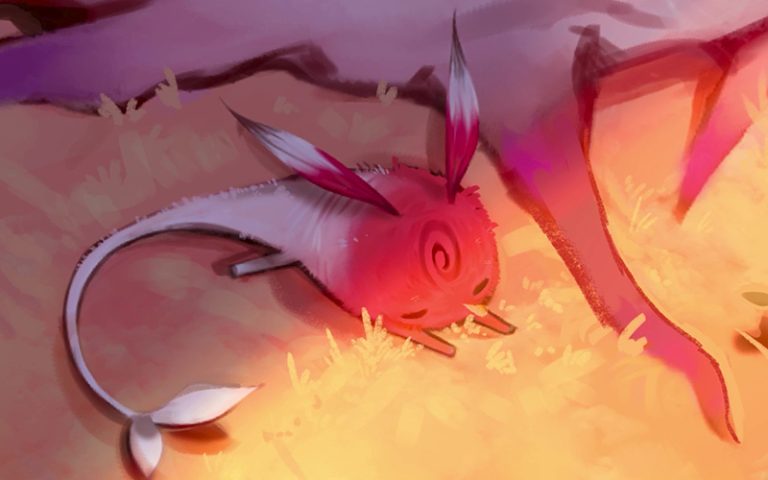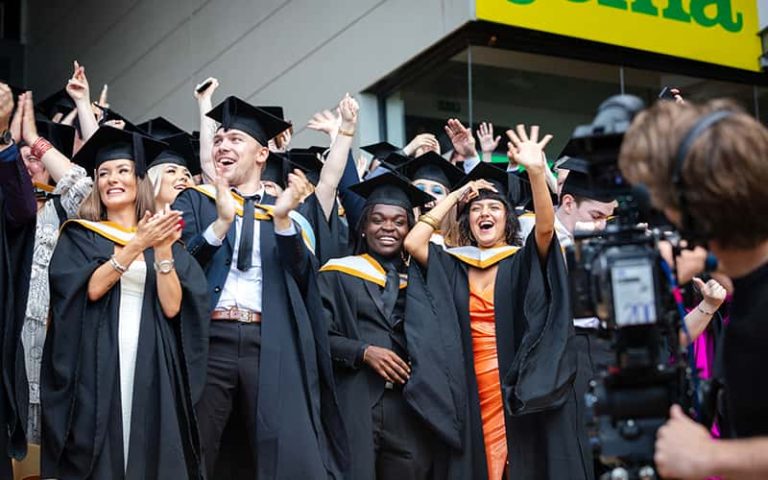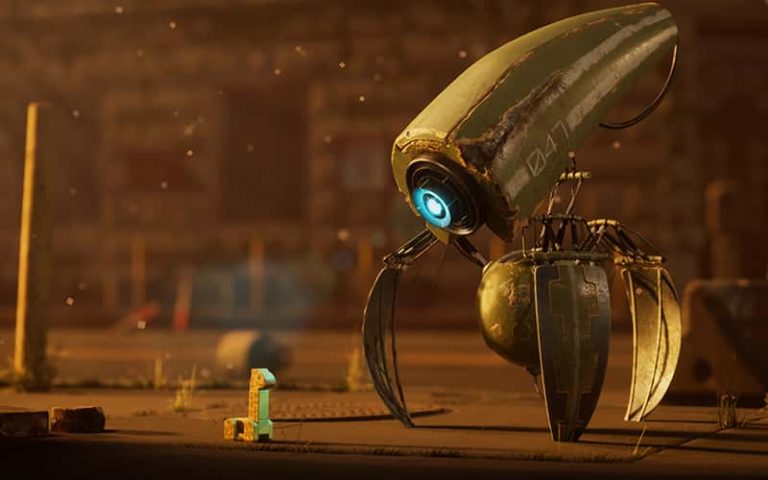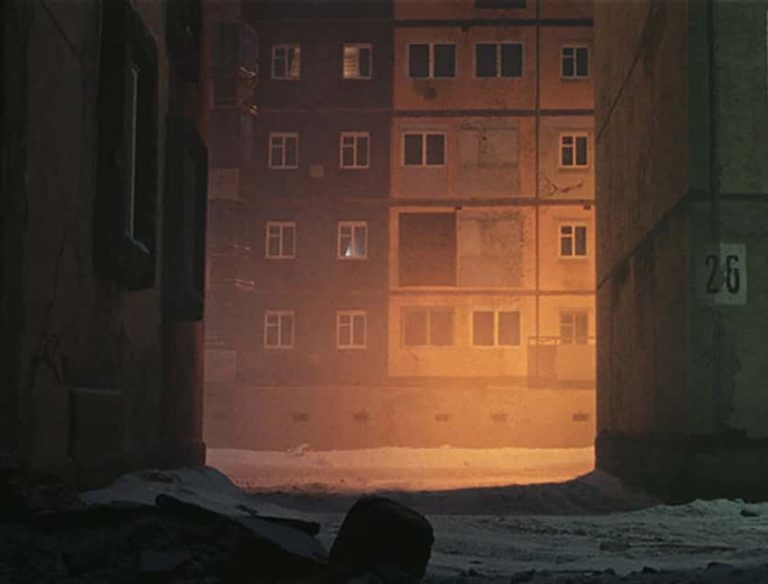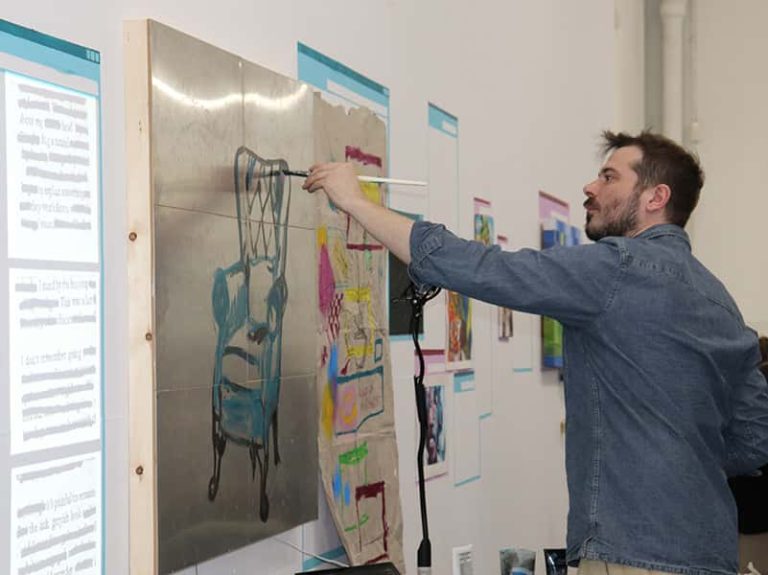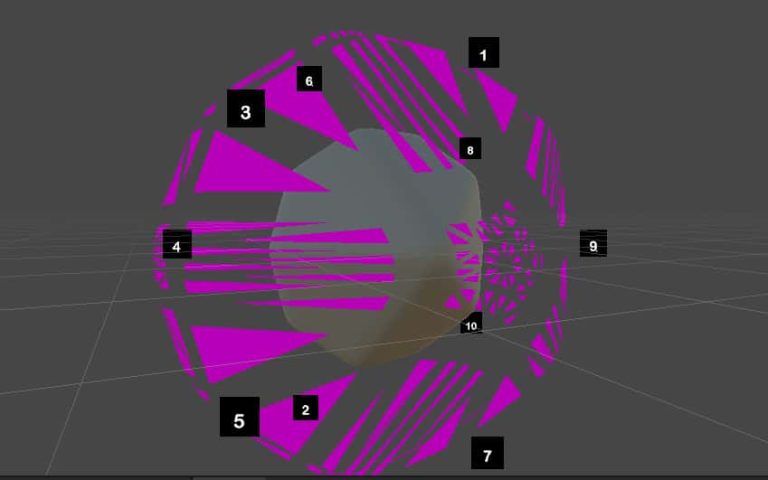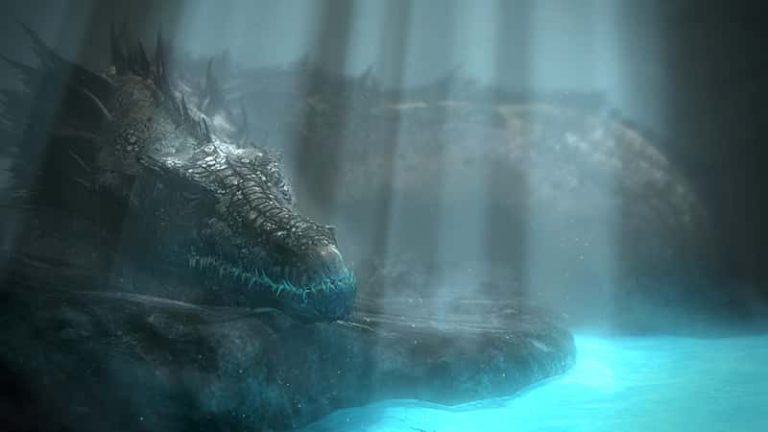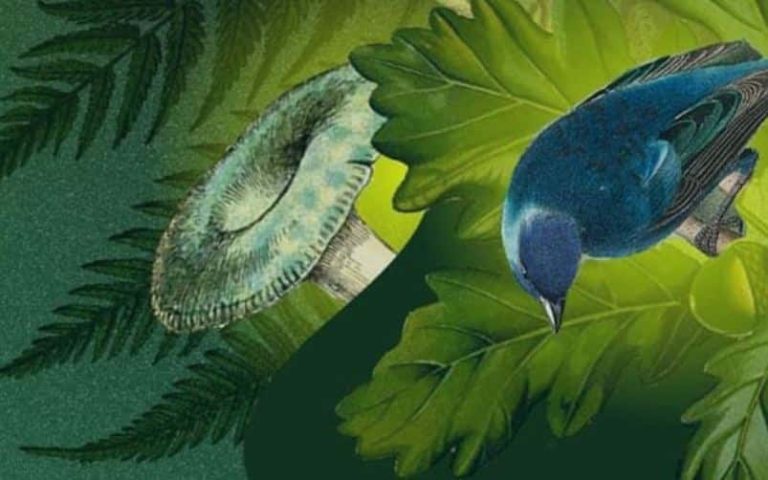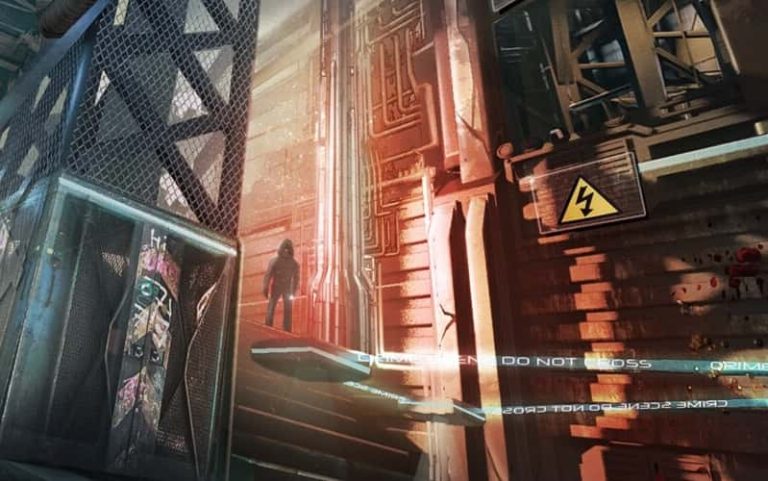Why study a tech degree at an arts university?
BSc (Hons) Games Development student Andy Dalaimo discusses his decision to study a technology-focused degree at Norwich University of the Arts.
BSc (Hons) Games Development student Andy Dalaimo discusses his decision to study a technology-focused degree at Norwich University of the Arts.
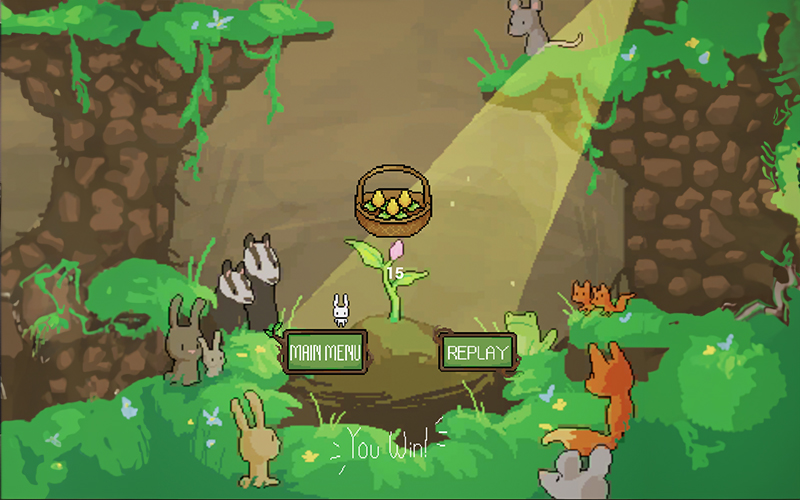
He talks about the power of collaboration, the importance of exchanges of ideas across disciplines and moving to Norwich from the United States.
A question I get asked a lot is ‘Why come to an arts university to study a Bachelors of Science?’ It can be a strange place to be, being a BSc student at a University that is hailed for its strong arts focus. But for me, I knew I wanted something more specific than just a technical degree. I wanted to further my technical studies, but I wanted to do so through the medium of Games and with the opportunity and resources to explore the more theoretical and cultural studies of Games. So I hit the jackpot, right? I found a uni that fit my specific collection of interests. That’s what I hoped for at least, but after over a year of studying at Norwich University of the Arts, what I actually found was something much greater.
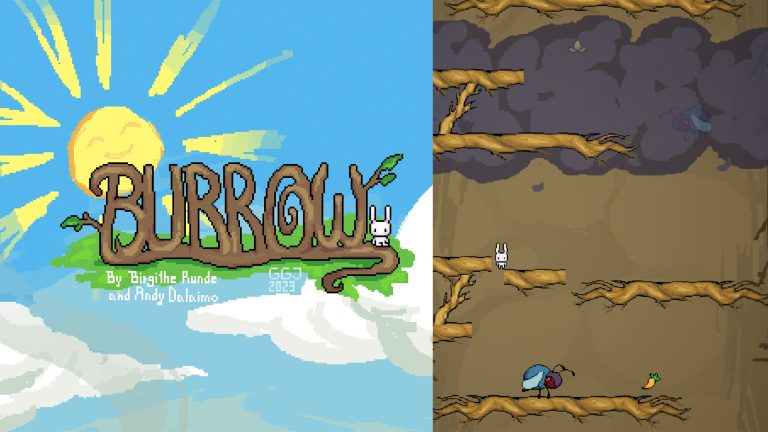
‘Burrow’, by Andy Dalaimo and Birgithe Runde for Global Game Jam 2023
A little background about me — I moved from the USA after achieving an Associates Degree in Computer Science. I knew I wanted to get into Games from a technical side and had many options in which to pursue that. Further Education in Computer Science from a technical school, or trying to find a larger University in America that offered Games Development as a course, to name a couple. Something that narrowed my search was that a big reason I wanted to get into Games was the idea of collaborating with artists. Although I come from a technical background, many other factors of games appealed to me, mainly writing (i.e. narrative design) and games theory studies.
These interests might sound quite specific – and well, that’s because they are. Games as a professional field is massive and ranges from technical programming and marketing to graphic design and fine art. The beauty in that large landscape is the niche we can carve out for ourselves as students trying to get into the field of games. For myself, I am a BSc Games Development student who studies the technical aspects of games, including gameplay programming and game engine/physics programming. I have a fierce passion for the way that video games can tell stories and influence our culture. These passions are not typically conducive to a “Technical” degree, but they do apply heavily when you’re studying at an Arts University.
“I realised that this is why I came to an arts university; to broaden my perspective of what I can achieve creatively and collaborate with artists in a mutually beneficial way with my technical skills.”
Studying outside of my own country was something I had been wanting to do for years, and finding Norwich University of the Arts was great timing as I finished my degree back home. I was interested that the Games courses focused on the collaboration between its two degree offerings BA Game Art and Design and BSc Games Development. I loved the idea that the two degrees can collaborate and create a studio-like environment, where artists and engineers create games and discuss the industry together.
Outside of the games department, there was also a wealth of knowledge to be found in collaborating with courses across the University. The beauty of attending an arts university is the sheer amount of creative energy found on campus from all different perspectives. No matter the course, there is always an opportunity to collaborate with peers outside of their faculty. Whether it is for personal projects or the briefs set by tutors, there is always something one course specialty can offer another.
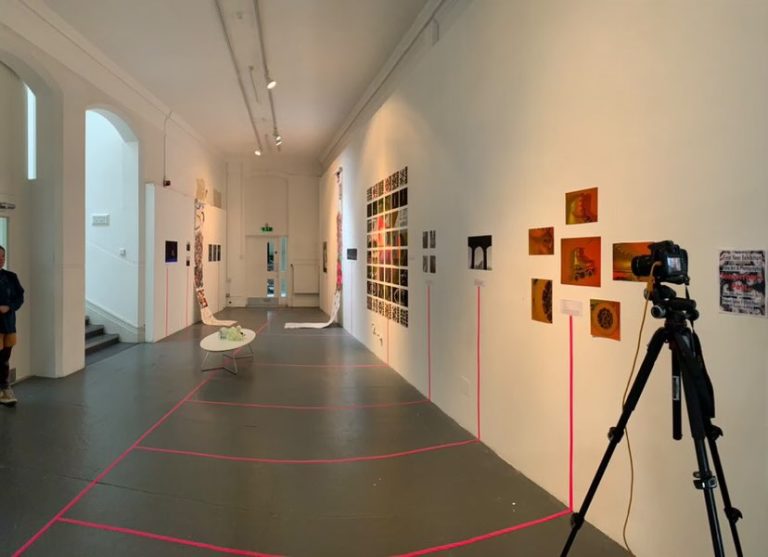
My first few months on the Games Development course were spent with my year group in the computer lab, getting used to the new schedule, new software, new friends, remembering which way of the road y’all drive on, and getting yelled at for not having tried a Greggs sausage roll. But once adjusted to the new setting, I found myself more settled and willing to branch out.
In a bit of a pinch, a friend on the BA Fine Art course, Madison Trent, messaged me to help with a technical problem she was running into while trying to set up an exhibition. (Side note: If you are one of the technical students at an arts university, the artists will ask you all sorts of technical questions. This is a good thing, lean into it.) Madison was creating an exhibition in collaboration with BA Photography students, exploring the motif of Time. In this exhibition, Madison had the quite brilliant idea of setting up a camera in the gallery space which recorded patrons, then, at the end of the exhibition, showed the visitors a projection of themselves interacting with the art and gallery they had just walked through.
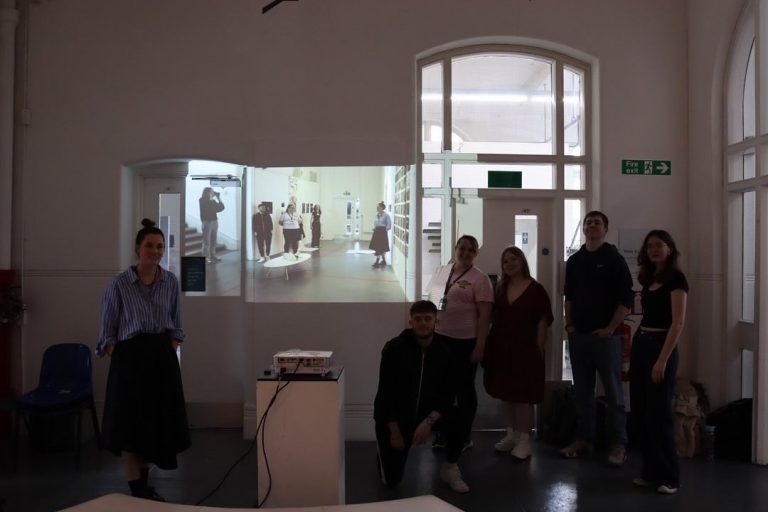
It was assumed that I was a bit more computer savvy and could set something like a camera recording on a stream delay up for them. I was very eager to see what they had in mind so I gladly agreed and was able to get it working. The end product turned out great and I felt proud to have contributed in a way that helped them achieve their vision.
This collaboration was small, I know. But at the time, it opened up something much larger for me. I realised that this is why I came to an arts university; to broaden my perspective of what I can achieve creatively and collaborate with artists in a mutually beneficial way with my technical skills.
Although I really enjoy studying in the technical field, the passion for thinking creatively and pushing conceptual ideas (like many of my peers in other courses do) I felt was really missing. Getting to know people in other courses, and seeing how they work, has also influenced my own personal practice. It offers a different perspective in tackling new ideas. I try to use their example as a way of approaching my own projects. Instead of having a checklist of technical skills to obtain, I can use my own creative expression and ideas to motivate my learning.
I’ve often found that unconventional or new ideas means having to find interesting ways to achieve them. You have to find those solutions by engaging with all sorts of perspectives, research, experimentation, and failure. I find this approach a great way to stay motivated and drive my own practice, while helping others achieve theirs when I can. The lessons I’ve learned in the short time that I’ve attended the University have been invaluable and have really shaped my perspective moving forward.
To find our more about Andy’s work, take a look at his website.
